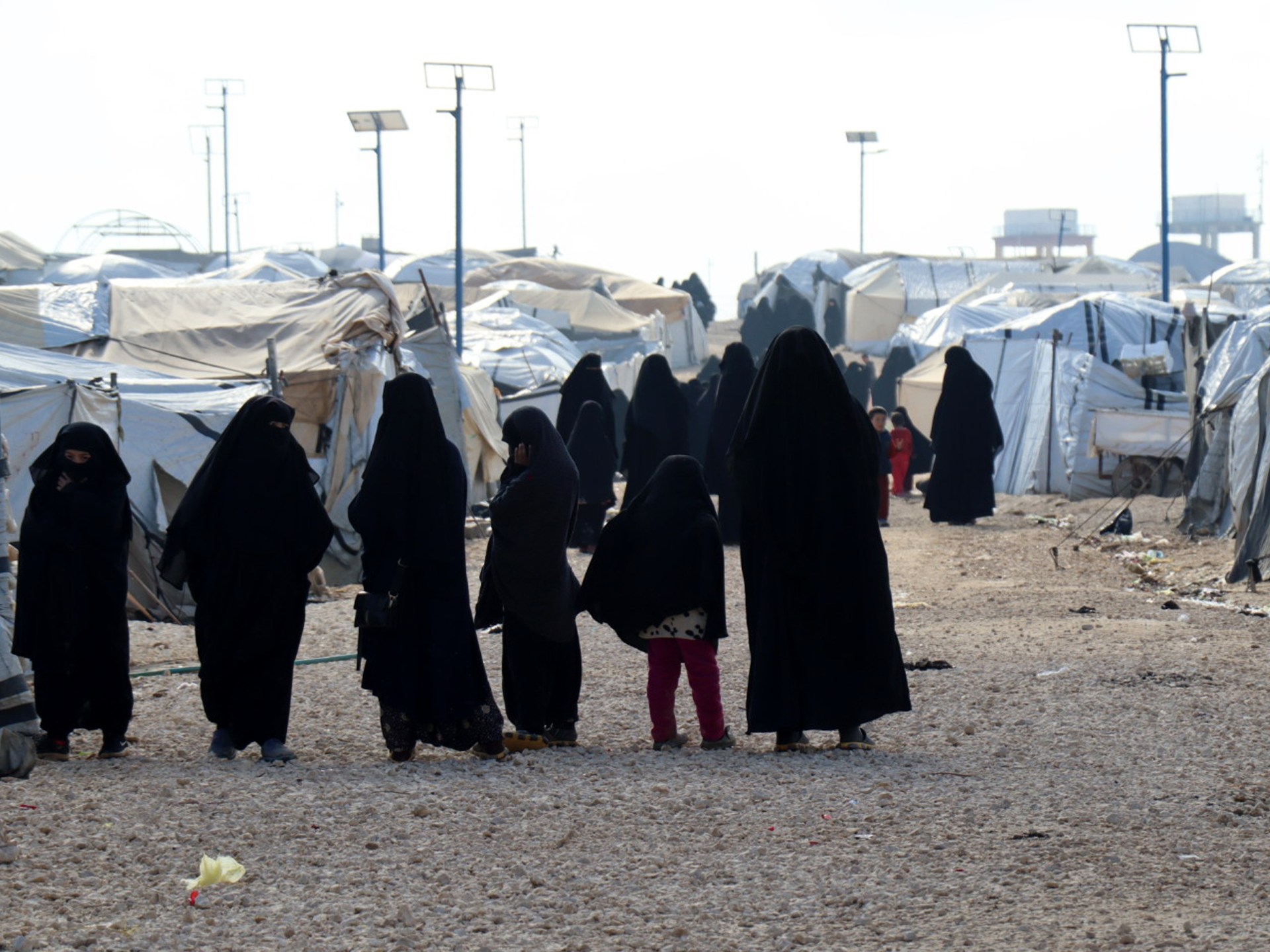Who guarantees the safety of the souls and honor of refugees if they return to their homes? (European archive)
The United Nations Human Rights Office revealed that Syrian refugees who fled the war were subjected to serious human rights violations such as torture and kidnapping upon their return to their homes, stressing that returning women are exposed to sexual harassment and acts of violence.
The spokeswoman for the United Nations High Commissioner for Human Rights, Elizabeth Throssell, said in a press conference - today, Tuesday - in Geneva that the report of the United Nations Human Rights Office "paints a disturbing picture of the suffering of returnees, especially women, amid the increasing number of deportations of Syrians from other countries."
It also considered that what was stated in the report “leads to believing that the general conditions in Syria do not allow for the safe, dignified and sustainable return of Syrian refugees to their homeland.”
The report's authors documented violations and abuses committed by the regime's government, de facto authorities, and other armed groups throughout the country, including "arbitrary detention, torture and ill-treatment, sexual and gender-based violence, enforced disappearance, and kidnapping."
Some women said in interviews that they were subjected to "harassment and pressure to provide sexual services to security officials and authorities in order to obtain civil documents."
A returnee woman in Eastern Ghouta said in an interview during the preparation of the report, “Women these days are forced to do everything in order to continue their lives. Especially if they do not have money, they are often exposed to sexual exploitation.”
The report highlighted the risk of detaining returnees, stating that detained women are often subsequently stigmatized on the basis of the assumption that they have been subjected to rape or sexual assault, even if this has not happened. "In some cases, their husbands divorce them and their families disown them," the report said.
The 35-page report stated that the violations it documented in Syria were “committed by persons affiliated with the government, opposition authorities, and armed groups.”
Between two fires
The report added, "While the Syrian population as a whole faces such human rights violations and abuses, it appears that returnees are more exposed to these risks than others," mentioning the seizures of money and property, confiscation of property, and deprivation of identity cards and other documents.
UN High Commissioner for Human Rights Volker Türk said, “The situation of these returnees raises serious questions about states’ commitment to due process and non-refoulement,” referring to preventing a person from being returned to his country if he faces the possibility of being subjected to torture or ill, inhuman or degrading treatment.
The report added, "While the Syrian population as a whole faces such human rights violations and abuses, it appears that returnees are more exposed to these risks than others," mentioning the seizures of money and property, confiscation of property, and deprivation of identity cards and other documents.
The report cited examples of forced returns of Syrian refugees in Türkiye and Lebanon. Turk stressed that any return to Syria must be "voluntary" while "providing the conditions for a safe, dignified and sustainable return."
But this is difficult to achieve in Syria, where the popular revolution that broke out in 2011 and was bloodily suppressed by the regime left more than half a million dead and plunged more than 90% of the population into poverty, according to United Nations figures.
However, the report indicated that despite this, many Syrians who fled their country decide to return to it because of the economic difficulties, abuses, and anti-refugee sentiment they face in the countries to which they moved.
It is noteworthy that more than 12 years after the popular revolution in Syria turned into a bloody war, there are still more than 5 million Syrian refugees in neighboring host countries, some of which are increasing pressure to return them to their country, and some of whom have been forcibly deported to Syria.
Source: Agencies

